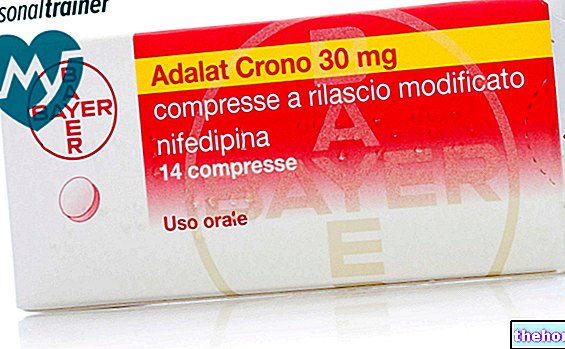Active ingredients: Ropivacaine
Ropivacaine Hospira 2 mg / ml Solution for injection
Package inserts of Ropivacaine - Generic Drug are available for pack sizes:- Ropivacaine Hospira 2 mg / ml Solution for injection
- Ropivacaine Hospira 7.5 mg / ml Solution for injection
Why is Ropivacaine used - Generic Drug? What is it for?
Ropivacaine hydrochloride is a local anesthetic.
Ropivacaine Hospira 2 mg / ml is used for the treatment of pain during childbirth.
Ropivacaine Hospira 2 mg / ml is also used for the relief and treatment of pain in a specific part of the body such as after an accident or surgery.
Ropivacaine Hospira is also used for pain relief in children between the ages of 0 and 12 both during and after surgery.
Contraindications When Ropivacaine - Generic Drug should not be used
Ropivacaine Hospira 2 mg / ml must NOT be administered in the following cases:
- If you are allergic (hypersensitive) to ropivacaine hydrochloride or the other ingredients of the medicine
- If you are allergic (hypersensitive) to other local anesthetics of the same class such as lidocaine or bupivacaine or have had an inappropriate response to local anesthetics in the past
- If the blood volume is low in your body (hypovolaemia)
- Directly into a blood vessel (intravenous anesthesia) to put a part of your body to sleep
- On the neck of the uterus (cervix) to relieve pain in childbirth.
- If you are unsure or in any of the above situations, talk to your doctor or anesthetist before taking ropivacaine.
Precautions for use What you need to know before taking Ropivacaine - Generic Drug
Before being treated with this medicine you should tell your anesthetist if you have or have ever had any of the following diseases:
- Severe liver disease or liver problems
- Kidney problems
- Heart problems
- Skin infections where the injection will be given.
If you have any of the above conditions your anesthetist will take them into account when determining the right dose of Ropivacaine Hospira 2 mg / ml to administer.
If you know you have a rare disease called "acute porphyria" or if a member of your family has it, tell your doctor as you may be required to use an anesthetic other than ropivacaine.
Interactions Which drugs or foods can modify the effect of Ropivacaine - Generic Drug
Tell your doctor if you are taking or have recently taken any other medicines, including medicines obtained without a prescription.
Other medicines may affect Ropivacaine Hospira 2 mg / ml or vice versa.
You should tell your anesthetist if you are taking (or plan to take) any other medicines, such as
- Other local anesthetics
- Strong pain relievers such as morphine or codeine
- Medicines used to treat arrhythmia such as mexiletine, amiodarone or lidocaine
- Fluvoxamine (used to treat depression)
- Enoxacin (antibiotic used in the treatment of bacterial infections)
- Ketoconazole (in the treatment of fungal infections).
Warnings It is important to know that:
Pregnancy and breastfeeding
If you are planning to become pregnant, if you are pregnant or breastfeeding, ask your doctor or pharmacist for advice before taking any medicine.
Apart from epidural use in childbirth, insufficient data are available on the use of ropivacaine hydrochloride in pregnancy. However, animal studies have not indicated any dangerous effects.
No data are available on the possible presence of ropivacaine hydrochloride in breast milk.
Driving and using machines
This medicine can cause problems with concentration, coordination, movements and attention. If you suffer from these symptoms, do not drive or operate machinery until you are fully recovered.
Important information about some of the ingredients of Ropivacaine Hospira 2 mg / ml Solution for injection
This product contains 3.38 mg of sodium in each milliliter of solution. This finding should be taken into consideration in patients on a controlled sodium diet.
Dosage and method of use How to use Ropivacaine - Generic Drug: Posology
Ropivacaine Hospira 2 mg / ml will be given to you by an anesthetist, therefore it is unlikely that you will be given an incorrect dose.
Your doctor will give you ropivacaine hydrochloride in the part of the body that needs to be asleep or in the vicinity of the section of the body that needs to be asleep or in a distant area of the body that needs to be asleep. The latter case is represented by the epidural injection (near the spine).
The dose should be adjusted by the anesthetist according to your needs. Your doctor will consider the indication of Ropivacaine Hospira 2 mg / ml, your general health condition, your age, your body weight in addition to the other medicines that may be given to you.
Overdose What to do if you have taken too much Ropivacaine - Generic Drug
As ropivacaine hydrochloride is most likely given in a hospital under the supervision of a doctor, it is unlikely that you will be given more than you need. However, if you are unsure, talk to your doctor, nurse or pharmacist.
The first symptoms indicative of overdosing of ropivicaine hydrochloride are:
- feeling of unsteadiness, light-headedness
- numbness in the lips and around the mouth
- numbness of the tongue
- difficulty hearing well
- poor eyesight
To reduce the risk of serious adverse effects, your doctor will stop the administration of ropivacaine hydrochloride when these symptoms appear.This means that as soon as any of these adverse effects occur you should inform your doctor immediately.
More serious adverse effects following excessive doses of ropivacaine hydrochloride or accidental administration into a vein include tremors, convulsions, heart problems (e.g. abnormal heartbeats, cardiac arrest) and breathing block.
If you have any further questions on the use of this medicine, ask your doctor, nurse or pharmacist.
Side Effects What are the side effects of Ropivacaine - Generic Drug
As with all medicines Ropivacaine Hospira 2 mg / ml Solution for injection can cause side effects, although not everybody gets them.
If you experience any of the following side effects, you must promptly inform your doctor of the severity of these effects. In fact, he may need urgent medical attention.
Uncommon side effects that may affect more than 1 in 1000 patients are listed below:
- Symptoms of central nervous system side effects - seizures / fits, light-headedness, tingling or numbness around the mouth (perioral paraesthesia), numbness of the tongue, increased hearing sensitivity (hyperacusis), ringing in the ears (tinnitus), sight, speech difficulties (dysarthria), muscle spasms, tremors
Rare side effects that may affect less than 1 in 10,000 patients are listed below:
- Cardiac arrest
- Irregular heartbeat (cardiac arrhythmia)
- Shortness of breath (dyspnoea)
- Allergic reactions (a serious allergic reaction involving difficulty in breathing or dizziness (anaphylactic reactions), a serious allergic reaction causing swelling of the face or throat, hives (angioneurotic edema)
Tell your doctor as soon as possible if you notice any of the following side effects
Very common side effects that may affect more than 1 in 10 patients are listed below:
- In adults, decreased blood pressure (hypotension)
- feeling sick (nausea)
Common side effects that may affect more than 1 in 100 patients are listed below:
- Headache
- Tingling (paraesthesia)
- dizziness
- Increased blood pressure (hypertension)
- Difficulty or inability to pass urine (urinary retention)
- Rise in body temperature
- Muscle stiffness
- Back pain
- Low blood pressure in children (hypotension)
- You may feel that your heart is beating faster or less often than normal
- Fainting
- Feeling sick (vomiting)
Uncommon side effects that may affect more than 1 in 1000 patients are listed below:
- Shortness of breath
- Low body temperature (hypothermia)
- Anxiety
- Decreased sense of pressure and touch (hypoesthesia)
In children, vomiting, nausea, itching and urinary retention (difficulty urinating) are the most frequently reported undesirable effects of clinical relevance.
If any of the side effects gets serious, or if you notice any side effects not listed in this leaflet, please tell your doctor, nurse or pharmacist.
Expiry and Retention
Store below 25 ° C. Do not refrigerate or freeze.
Keep this medicine out of the reach and sight of children.
Do not use Ropivacaine Hospira 2 mg / ml Solution for injection after the expiry date which is stated on the label and outer carton. The expiry date refers to the last day of the month.
Ropivacaine Hospira 2 mg / ml Solution for injection should not be used if you notice any particles in the solution or if it changes color.
After first opening: The medicine should be used immediately.
Medicines should not be disposed of via wastewater or household waste. Ask your pharmacist how to throw away medicines you no longer use. This will help protect the environment.
Other information
What Ropivacaine Hospira 2 mg / ml contains Solution for injection
The active ingredient is ropivacaine hydrochloride. Each milliliter of solution for injection contains 2 mg of anhydrous ropivacaine hydrochloride (as ropivicaine hydrochloride monohydrate).
Each 10 ml or 20 ml vial of solution for injection contains 20 mg and 40 mg of anhydrous ropivacaine hydrochloride (as ropivacaine hydrochloride monohydrate), respectively.
The other ingredients are sodium chloride, hydrochloric acid (to adjust the pH), sodium hydroxide (to adjust the pH) and water for injections.
What Ropivacaine Hospira 2 mg / ml Solution for injection looks like and contents of the pack
Ropivacaine Hospira 2 mg / ml Solution for injection is a clear, colorless solution with no visible particles.
Ropivacaine Hospira 2 mg / ml Solution for injection:
- 20 mg / 10 ml: 10 ml European Pharmacopoeia compliant Type I clear glass vial with chlorobutyl rubber closure and aluminum flip-off cap. Packs of 5 and 10 vials.
- 40 mg / 20 ml: 20 ml Type I clear glass vial compliant with European Pharmacopoeia with chlorobutyl rubber closure and aluminum flip-off cap. Packs of 5 and 10 vials.
Not all pack sizes may be marketed.
Source Package Leaflet: AIFA (Italian Medicines Agency). Content published in January 2016. The information present may not be up-to-date.
To have access to the most up-to-date version, it is advisable to access the AIFA (Italian Medicines Agency) website. Disclaimer and useful information.























-nelle-carni-di-maiale.jpg)




